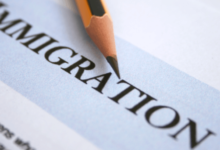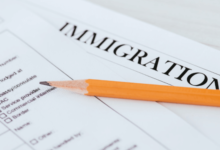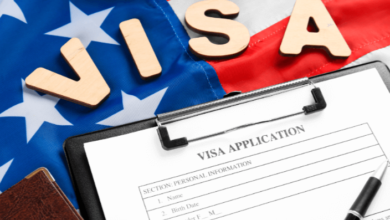Navigating Immigration Laws: Tips for a Successful Application

Immigration laws are complex and constantly evolving, making the process of applying for visas, permanent residency, or citizenship a daunting task for many. Navigating these legal frameworks requires careful planning, a deep understanding of the specific rules and regulations for your country of destination, and attention to detail. In 2024, with stricter border controls, changing immigration policies, and an increased reliance on technology in government systems, it’s more important than ever to be well-prepared when filing your application.
For anyone planning to immigrate, whether for work, study, or family reunification, understanding the process and having a solid strategy can make the difference between a successful and unsuccessful application. Below are some key tips and strategies to help you navigate immigration laws effectively and improve your chances of success.
Research the Specific Requirements for Your Immigration Path
One of the most important first steps in the immigration process is to understand which type of visa or immigration status is most appropriate for your situation. Each country has various visa categories, such as work visas, student visas, family-based visas, and investor visas. Each of these categories has its own specific eligibility criteria, documentation requirements, and timelines.
Before submitting an application, thoroughly research the visa type that matches your needs. For example, if you’re applying for a work visa, make sure you meet the educational qualifications, professional experience, or language requirements that the country demands. Similarly, for family reunification visas, be aware of the sponsorship requirements and financial thresholds needed to support your family members.
It’s also important to keep in mind that immigration policies can change frequently. A visa category that exists today may be modified or eliminated in the future. Therefore, it’s a good idea to stay updated on current policies through official government websites or by consulting immigration experts.
Gather All Required Documentation and Proofs
One of the most common reasons for immigration applications being delayed or denied is incomplete or incorrect documentation. Immigration authorities are meticulous about the paperwork required to support your application. These documents may include proof of identity, financial records, employment contracts, educational credentials, and proof of relationship in the case of family visas.
Make a checklist of all the required documents, and ensure that they are translated into the official language of the country you’re applying to, if necessary. Many immigration offices will only accept certified translations, so it’s essential to use professional services to ensure the accuracy and legality of your documents. In addition, always submit the original documents where needed and keep multiple copies for your own records.
Pay close attention to deadlines, as submitting documents late can result in delays or even rejection. Some countries require biometric data, such as fingerprints and photos, to be provided within a specific time frame. Ensure that you book these appointments well in advance to avoid missing any deadlines.
Ensure Your Application is Complete and Accurate
Immigration forms are often long and complicated, and mistakes or omissions can lead to significant delays. Double-check your application for any errors or missing information before submission. Even a minor mistake, like a misspelled name or an incorrect date, can lead to delays, as immigration officers may return your application for corrections or ask for further clarification.
It’s also essential to ensure that the information provided in your application matches your supporting documents exactly. For example, the name on your birth certificate should match the name on your passport. If there are discrepancies, explain them in a cover letter and provide official documentation to clarify the issue.
Some immigration forms ask for extensive details about your travel history, employment background, and family members. Be as thorough and accurate as possible. Leaving out relevant information or providing false information, even unintentionally, can lead to your application being denied.
Seek Legal Advice When Necessary
Immigration law is a specialized field, and it’s often helpful to consult with an immigration attorney or legal expert to ensure that your application is complete and accurate. This is especially true if you have a complex case, such as a criminal record, previous visa denials, or an asylum claim.
A qualified immigration lawyer can help you navigate the legal system, advise you on the best visa category for your situation, and assist with the preparation of your documents. They can also help you avoid common pitfalls, such as failing to meet residency requirements or misinterpreting the eligibility criteria for a specific visa.
While legal advice may involve an additional expense, it can save time and reduce stress in the long run by ensuring that your application is as strong as possible. For those who cannot afford private legal services, many non-profit organizations and community groups offer low-cost or free immigration assistance.
Stay Updated on Immigration Policy Changes
In recent years, many countries have introduced significant changes to their immigration policies. For instance, in the United States, visa quotas and waiting times for certain categories have changed, and new restrictions on specific countries have been implemented. Similarly, European Union countries have introduced stricter rules for non-EU nationals in the wake of political shifts like Brexit.
It’s important to stay informed about any new policies or changes that might impact your application. Immigration laws are often influenced by the political climate, economic conditions, and international agreements, which means that new rules can be implemented with little notice. Regularly checking official immigration websites and subscribing to legal updates can help you stay ahead of any changes that could affect your case.
Furthermore, in some cases, there may be grace periods or transitional rules that allow you to take advantage of old regulations before new laws come into effect. Being aware of these changes can help you better plan your immigration strategy and ensure that your application meets the most current legal standards.
Prepare for an Immigration Interview (if required)
For certain visa types, an interview with immigration officials is part of the application process. Whether you’re applying for a student visa, work visa, or family visa, these interviews are typically designed to verify the information you provided in your application and assess your eligibility for entry.
Before attending your interview, review all the details of your application thoroughly. Be prepared to explain your reasons for immigrating, how you meet the eligibility criteria, and what your plans are once you arrive in the country. For work visas, be ready to discuss your job offer and how your skills and experience align with the needs of the employer. For family reunification visas, you may be asked to provide additional proof of your relationship with the sponsoring family member.
Dress appropriately for the interview and maintain a professional demeanor. Honesty is crucial—if you don’t know the answer to a question, it’s better to admit it than to provide incorrect information. Immigrations officers are trained to detect inconsistencies, and providing false information can result in your visa being denied.
Understand Processing Times and Be Patient
Immigration applications can take anywhere from a few months to several years to process, depending on the type of visa and the country in question. For example, some family-sponsored visas may have waiting lists that stretch several years due to quotas and high demand, while student or work visas may be processed more quickly.
It’s important to understand that immigration authorities often work with large volumes of applications, which means delays are not uncommon. In many cases, there’s little you can do to expedite the process. However, ensuring that your application is complete and accurate from the start can help prevent unnecessary delays caused by requests for additional information or corrections.
While waiting, avoid making significant life decisions, such as quitting your job or selling your property, until you have official confirmation of your visa approval. Immigration decisions are never guaranteed, and it’s important to have a contingency plan in case your application is delayed or denied.
Keep Records of All Correspondence
During the immigration process, you will likely communicate with various government agencies, lawyers, and other parties involved in your case. It’s crucial to keep detailed records of all these interactions, including copies of your application forms, correspondence, and receipts for any fees paid.
Keeping organized records will help you quickly respond to any requests for additional information from immigration authorities. If there are any discrepancies or issues with your application, having a complete record of your communications and submissions can help you resolve them more efficiently.
Additionally, these records can be useful in case of future immigration applications or legal matters related to your residency status.
Conclusion: Patience, Preparation, and Persistence
Navigating immigration laws is a complex process that requires careful attention to detail, thorough preparation, and patience. Whether you are applying for a visa, permanent residency, or citizenship, understanding the legal requirements, gathering the correct documents, and staying updated on policy changes can significantly improve your chances of success.
Seeking legal advice when needed, maintaining accurate and organized records, and preparing for interviews can all make a difference in the outcome of your application. Finally, patience and persistence are essential—immigration processes often take time, but with careful planning and a well-executed strategy, you can achieve your goals of living and working in a new country.



